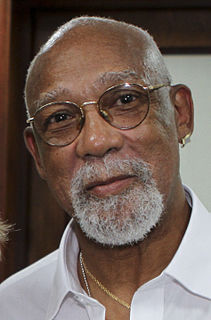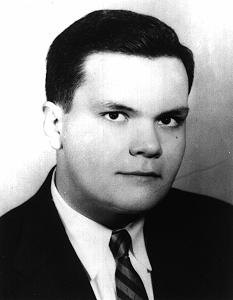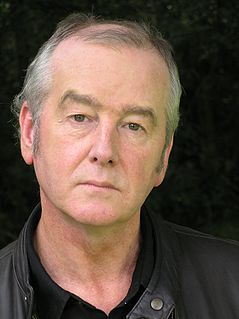A Quote by Walter Dean Myers
I was raised in Harlem. I never found a book that took place in Harlem. I never had a church like mine in a book. I never had people like the people I knew. People who could not find their lives in books and celebrated felt bad about themselves. I needed to write to include the lives of these young people.
Related Quotes
As a kid growing up and seeing so much strife taking place in society, and particularly on Blacks and people of color, I had an opportunity as a young man to witness the change that was taking place in Harlem, the exodus of white folks leaving Harlem, which I thought was a very cohesive situation. But they felt that they needed to leave.
People are too afraid of uptown. A lot of people will tell you, like, "Don't go to Harlem. You can never go there. 'Cause as soon as you get there, they kill you." That's what people think. As soon as you arrive in Harlem, someone just stabs you in the face right away. That's people's image of Harlem: just everyone standing around waiting for lost white people to kill all day. "Did you see any? I didn't either."
I believe in books. And when our people [coughing] - our people of Jerusalem, let's say after the Romans destroyed the temple and the city, all we took is a little book, that's all. Not treasures, we had no treasures. They were ransacked, taken away. But the book - the little book - and this book produced more books, thousands, hundreds of thousands of books, and in the book we found our memory, and our attachment to that memory is what kept us alive.
Before I wrote The Power of Now, I had a vision that I had already written the book and that it was affecting the world. I had a sense there was already a book somehow in existence. I drew a circle on a piece of paper and it said "book." Then I wrote something about the effect the book had on the world, how it influenced my life and other people's lives, and how it came to be translated into many languages affecting hundreds of thousands of people.
I know people who have suffered writer's block, and I don't think I've ever had it. A friend of mine, for three years he couldn't write. And he said that he thought of stories and he knew the stories, could see the stories completely, but he could never find the door. Somehow that first sentence was never there. And without the door, he couldn't do the story. I've never experienced that. But it's a chilling thought.
I was getting tired about what the preacher called Christian. Anything he did was Christian, and the people in his church believed it, too. If he stole some book he didn't like from the library, or made the radio station play only part of the day on Sunday, or took somebody off to the state poor home, he called it Christian. I never had much religious training, and I never went to Sunday school because we didn't belong to the church when I was old enough to go, but I thought I knew what believing in Christ meant, and it wasn't half the things the preacher did.
Even very recently, the elders could say: 'You know, I have been young and you never have been old.' But today's young people can reply: 'You never have been young in the world I am young in, and you never can be.' ... the older generation will never see repeated in the lives of young people their own unprecedented experience of sequentially emerging change. This break between generations is wholly new: it is planetary and universal.
If you want to write about a person who isn't nice, people say, "This is a bad book. It's about somebody I couldn't stand." But that's not the point. You don't have to like a character to like a book. Most of the time, people would misjudge and say, "I didn't like the book." No, you didn't like the character. That doesn't make it any less interesting of a book. In fact, to me, it makes it more interesting.
I thought how you can never tell just by looking at them what they were thinking or what was happening In their lives. Even when you got daft people or drunk people on buses, people that went on stupid and shouted rubbish or tried to tell you all about themselves, you could never really tell about them either... I knew if somebody looked at me, they'd know nothing about me, either.





































